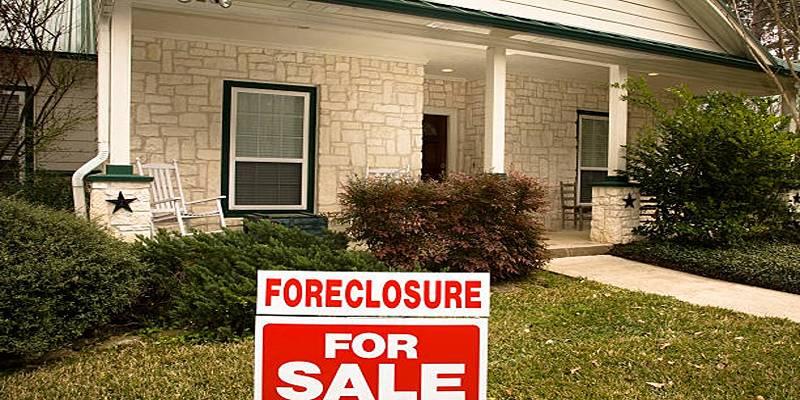Foreclosed homes provide buyers with an opportunity to access homes at less market value but with risks such as different condition, legalities, and complicated sales procedure. These are the properties brought by the defaults in mortgaging coupled with repossessions by lenders. When prepared properly and researched, this market can be navigated by buying customers to save big. This guide presents tips, available finances and how to make up your mind on such a decision.
Understanding the Foreclosure Process

Before diving into purchasing strategies, it's crucial to understand how foreclosures work. The foreclosure process typically follows three main stages: pre-foreclosure, auction, and real estate owned (REO) properties.
During pre-foreclosure, homeowners have received notice of default but still own the property. This stage offers opportunities for short sales, where the lender agrees to accept less than the outstanding mortgage balance. Auction sales occur when properties are sold to the highest bidder, often requiring cash payments and offering no inspection opportunities.
REO properties are homes that didn't sell at auction and are now owned by the lender. These properties are typically sold through real estate agents and offer more traditional buying experiences, including the possibility of inspections and conventional financing.
Research Properties Thoroughly
Successful foreclosure purchases begin with comprehensive research. Start by identifying available properties through online databases, local newspapers, and real estate websites that specialize in foreclosures. Many counties maintain public records of foreclosure filings that can provide valuable information about upcoming opportunities.
When evaluating properties, gather details about the home's history, condition, and neighborhood. Research comparable sales to gauge market values and make competitive offers. Check property tax records for assessed values or liens, and investigate future development plans, school districts, and local market trends. These factors are crucial for ensuring long-term investment value and strong resale potential.
Secure Financing Early
Foreclosure purchases often move quickly, making pre-approved financing essential. Traditional mortgages are available for REO properties, but auction purchases typically require cash or alternative financing arrangements. Contact multiple lenders to understand your options and get pre-approval letters before beginning your search.
Work with lenders experienced in foreclosure purchases, as they understand the specific requirements and timelines. Many offer specialized programs with faster approvals and flexible terms. Note that some foreclosed properties may not qualify for traditional loans due to their condition. Financing options like FHA 203(k) loans can help you buy and renovate properties needing major repairs.
Inspect Properties Carefully
Property inspections present unique challenges in foreclosure purchases. While REO properties often allow inspections, auction properties typically don't. For properties you can't inspect internally, conduct thorough external examinations and research public records for permits and violation notices.
Check for deferred maintenance, water damage, or structural issues that could lead to costly repairs. Focus on key areas like the roof, foundation, HVAC, and plumbing. Vacant properties may have damage from neglect or vandalism. Hire professionals to inspect major systems and structures, and always budget for unexpected repairs, as foreclosed homes often hide unaddressed problems.
Factor in Additional Costs
Purchasing foreclosed homes involves costs beyond the purchase price that buyers must consider when determining their budgets. Outstanding property taxes, homeowner association fees, and utility liens may transfer to new owners. Research these potential obligations before making offers.
Renovation costs can add up, especially for long-vacant properties. Plan for immediate repairs to ensure safety and habitability, along with cosmetic updates for resale or rental appeal. Foreclosure purchases may also involve higher legal fees, title insurance, and survey costs due to transaction complexity. Carefully factor these expenses into your investment calculations to assess potential returns effectively.
Work with Experienced Professionals
Navigating foreclosure purchases becomes much easier with the right professional team. Real estate agents specializing in foreclosures understand the unique aspects of these transactions and can provide valuable guidance throughout the process. They often have access to properties before they hit the general market.
Experienced real estate attorneys specializing in foreclosure law can guide you through contracts, address title issues, and ensure legal procedures are followed. Their expertise is crucial for resolving complex title problems or liens. Additionally, work with contractors for accurate repair estimates before purchasing. Reliable estimates help you make smarter offers and avoid properties requiring excessive investment.
Understand Your Rights and Limitations
Foreclosure purchases come with different rights and protections compared to traditional real estate transactions. REO purchases typically include standard disclosures and seller warranties, while auction purchases are usually "as-is" with no recourse for undisclosed problems.
Research local laws on foreclosure purchases, redemption periods, and buyer protections, as former owners may have rights to reclaim properties within certain timeframes. Understand the differences in buying from lenders, government agencies, or third-party companies, as each has unique policies and procedures. Government-owned properties often include specific qualifications and purchase rules, so review requirements carefully before proceeding.
Making Your Investment Work

Successful foreclosure investing requires clear strategies for maximizing your investment's potential. Determine whether you're purchasing for personal residence, rental income, or resale profit, as this affects your purchase criteria and renovation priorities.
For rental properties, target areas with high demand and ensure positive cash flow after expenses by researching local rental and vacancy rates. For resale, prioritize properties in sought-after neighborhoods with strong appreciation potential. Focus on cost-effective cosmetic upgrades that maximize ROI, but avoid over-improving beyond the neighborhood's standards to ensure profitability and long-term value.
Final Thoughts
Success in foreclosure purchasing requires patience and preparation. Avoid rushing; instead, research thoroughly and seek professional advice. Set a clear budget covering the purchase price, repairs, and carrying costs, and stick to it despite competition. Build relationships with local real estate experts, contractors, and lenders for valuable insights and opportunities. Not every foreclosure is a good deal—focus on value after all costs. Sometimes, walking away is the best decision.












